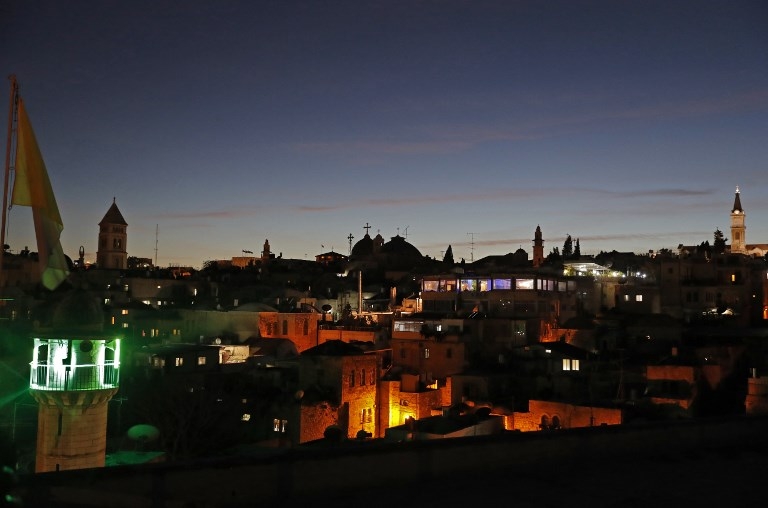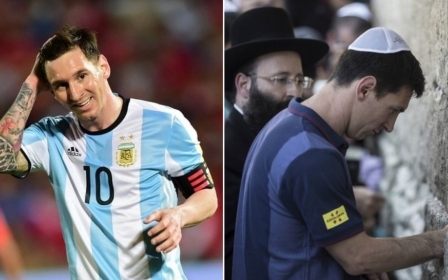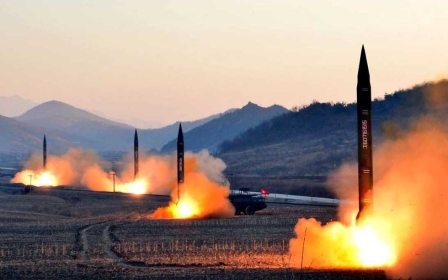Arabic press review: Jerusalem not for sale, say Islamic and Christian leaders

Preventing a Jerusalem fire sale
Islamic and Christian organisations in Jerusalem are taking measures to ensure that Gulf countries are unable to buy up Palestinian properties in the city, news site Arabi21 reports.
Jamal Amro, a member of the Jerusalem supreme Islamic committee, told Arabi21 that the associations will form a committee of experts to monitor suspicious purchases.
"The committee will carry out a property survey to document all the Arab properties in the Old City in Jerusalem and identify the owners and the date of purchase of the property," Amro said.
Amro said that Saudi Arabia and the United Arab Emirates, in particular, are the countries of most concern.
The UAE, he said, is offering inflated prices for houses in the Old City while Saudi Arabia wants to replace Jordan as the custodian of Jerusalem's holy sites.
"Some residents of the city would sell their properties because of the difficult economic conditions that the residents of Jerusalem have been going through as a result of the high taxes imposed by the occupation authorities," he added.
The issue came to head recently when the deputy head of the Islamic Movement in Israel, Kamal al-Khatib, said that the former leader of the Fatah movement, Mohammed Dahlan, was involved in an Emirati plan to build an Israeli settlement next to the al-Aqsa Mosque, Arabi21 reported.
An Algerian movement... against Bouteflika
Fourteen Algerian figures have established a new political movement and issued an open letter opposing the nomination of President Abdelaziz Bouteflika in next year's elections, al-Quds al-Arabi reports.
The founders of Mouwatana - which means "citizenship" - say their group will be a space for open discussion for those who reject who reject a fifth term for Bouteflika and seek peaceful change of the existing government.
In a statement, the founders said they decided to work together within the framework of consultation, reflection and initiation in order to contribute to the real change that the country needs now more than ever before.
They stressed that the departure of Bouteflika alone would not be enough, but that Algeria needs political reforms and deep reforms in state institutions as well.
Preparing for war in the Golan Heights
The Israeli military is currently conducting large-scale drills in the occupied Golan Heights, according to the Saudi newspaper Asharq al-Awsat.
Thousands of soldiers and officers belonging to the reserve army were reportedly called up for the drills, which the military said will last for several days without specifying when they will end.
The aim behind the training, according to Asharq al-Awsat, is to "examine the readiness of the army in the Golan to engage in immediate and surprising battles on the Syrian front, and the ability to move from the training to a combat situation immediately".
As the drills started, Israeli Prime Minister Benjamin Netanyahu warned of an "imminent Iranian threat in Syria" during Sunday's regular cabinet session.
Jordan under pressure
Jordan's newly appointed prime minister says that the kingdom is under extraordinary pressure to change its political stances, according to the Jordanian newspaper al-Ghad.
Omar al-Razzaz did not specify what kind of pressure he meant or what position needed to change. However, several months ago, King Abdullah II said that Jordan was being pressured to change its position concerning Jerusalem in return for the resumption of financial aid.
After several consecutive days of anti-austerity protests last week, Razzaz replaced Hani al-Mulki as prime minister and was put in charge of forming a new government.
Razzaz made his comments during a meeting with representatives of political parties in Jordan in which he assured them that consultations around the new government are ongoing.
The king, he told them, has asked him not to rush so that he won't have to reshuffle any time soon.
* Arabic press review is a digest of reports that are not independently verified as accurate by Middle East Eye.
Middle East Eye propose une couverture et une analyse indépendantes et incomparables du Moyen-Orient, de l’Afrique du Nord et d’autres régions du monde. Pour en savoir plus sur la reprise de ce contenu et les frais qui s’appliquent, veuillez remplir ce formulaire [en anglais]. Pour en savoir plus sur MEE, cliquez ici [en anglais].




